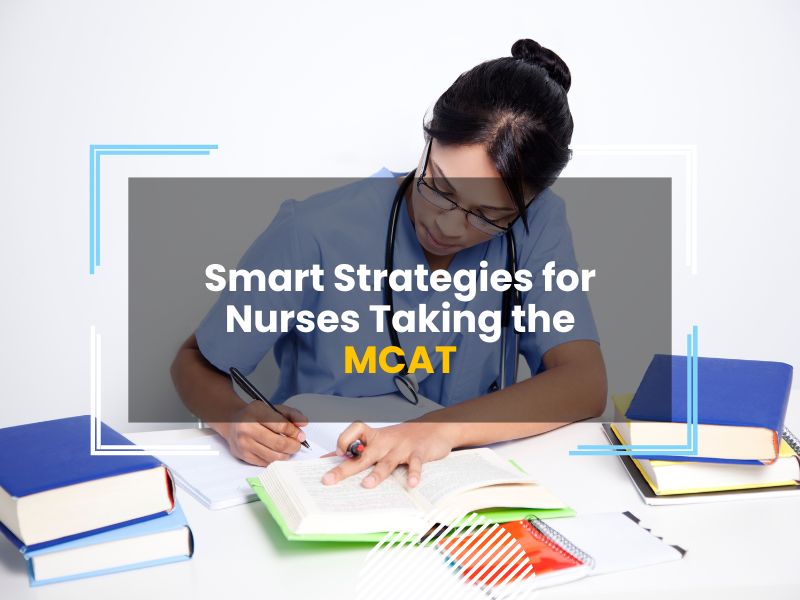Introduction
With thousands of applications every year for 160 spots, the McMaster Bachelor of Health Sciences Program (BHSc) is probably the most competitive undergraduate program in Canada. This undergraduate program is focused on the topics of health, illness and wellness, and is unique in providing an education with a focus on self-directed, team-based and problem-based learning. This contrasts with the typical health or life science programs at most universities, where the education comes primarily from didactic lectures. For more information about McMaster’s BHsc program, including the structure of the program, courses, etc. please check out the official website.
Why is this program so competitive? For one, its exclusivity for an undergraduate health science program (with 160 first-year spots) by definition, this makes it competitive. With 3,500 applicants and only 160 spots, you need to be in the top 5% of applicants to get in. That’s extremely difficult. Secondly, among high school students, it is widely viewed as the premier undergraduate program for students interested in getting into medical school. For the 2014/2015 graduating BHSc class, over 50% ended up in medical school (click here for more statistics). However, whether or not the McMaster BHSc program indeed provides an advantages for applying to medical school is a debate for another article.
The bottom line is that this program is very competitive. We have medical school classmates who previously applied to this program and did not get in. As such, you need to put your best foot forward if this is the program you want to get into.
The Selection Process
Admission to the McMaster BHSc program is essentially based on two pieces of information: 1.) Your courses and grades; 2) Your supplementary application.
Course and Grade Requirements
Before your supplementary application is even considered, you must first meet the course and grade requirements. The course requirements are:
- Biology (SBI4U)
- Chemistry (SCH4U)
- English (ENG4U)
- One of:
- Advanced Functions (MHF4U),
- Calculus & Vectors (MCV4U) or
- Mathematics of Data Management (MDM4U)
- One non-math, non-science, non-technology 4U/M
- One additional U or M credit to total six
In terms of grades, applicants must have a Grade 12 course average of 90% or higher. This, however, is just the cutoff point. BHSc students have reported increasingly high admission averages among entering cohorts, ranging from 93% to 96%.
Supplementary Application
The supplementary application is an extra component of the McMaster BHSc admissions process that evaluates the applicant beyond academics. It consists of 3 small essay questions (1500 characters max.) used to assess the problem solving, creative thinking, personal qualities, communication and writing skills of the applicant. Only students who meet the course and grade requirements will have their supplementary application read and scored.
Offers of Admission
Your supplementary application ranking and final/interim Grade 12 marks will be used in combination to determine whether you receive an offer of admission to the program. Thus, successful applicants usually have a high ranking in both grades and supplementary application.
Our Top 10 Tips for a Successful McMaster Health Science Application
Now that you understand the basics of applying to the McMaster BHSc program, it’s time to get into the meat of this guide – how to maximize your shot at getting accepted. This guide is written by Canadian medical students who have previously been offered admission at the McMaster BHSc program. Using our experiences at getting into both McMaster’s BHSc program and medical school, we believe we have some useful advice for you.
Keep in mind this is our opinion and based on our own unique experiences. Therefore, we suggest you think critically about our suggestions, and see where they may be of benefit of you in your application. We wish you the best of luck. Without further adieu, here are the Top 10 Tips for a Successful McMaster Health Science Application:
#1: Maximize your mid-term marks – final marks don’t matter.
This advice goes for any special undergraduate program or scholarship you are applying for. Scholarships and undergraduate programs, like BHSc, review applications in the middle of the year, only after seeing mid-term marks.
What does this mean for you? It means don’t fret about getting a super high final average. Work hard in your first semester, and get midterm marks as high as possible. In fact, if you go to a semestered school, you might want to take your easier courses in your first semester – that way you have the highest midterm marks possible.
Once those are submitted, feel free to take it a bit easier. McMaster’s BHSc, for example, may accept you when they see your midterm 95 average, and it doesn’t matter whether you end up with a 90 average – you have already gotten in.
#2: Start your supplementary application well in advance.
It’s easy for students to procrastinate their supplementary application, panic when they start it the night before, and submit a piece of work that is nowhere up to par with what they are capable of. Don’t fall into this trap!
We suggest you start your supplementary application at least one month in advance. You’d be surprised at how difficult and time consuming it can be to brainstorm ideas, write drafts, re-write drafts, and then go through revisions. While we have all heard of miracle cases of successful applicants completing their applications the night before, this is rare. Don’t leave your chances up to luck. It’s just way too much work to do in one night.
Could you “complete” your application in one night? Sure. Would it be your best possible application? Probably not.
#3: Always brainstorm and outline first, then write.
Never just dive into typing up an answer. The best answers come from strong preparation.
Start by brainstorming: what are all of the different ways you could approach this question? The different ideas you could use? The different examples from your life you could draw on? Why pick one over the other? Figure out what all your options are for how you could answer the question, and then figure out which option would provide you with the best essay answer. You’d be surprised how many great alternatives you miss out on just by using the first answer that comes to mind.
Next outline the following: in roughly 5 to 6 points, outline your introductory idea, closing idea, and 3-4 main ideas or examples in between. Use this as an opportunity to organize your structure for answering the question and building appropriate transitions between your ideas. Doing so will save you a lot of time from typing up full, comprehensive sentences and then realizing you didn’t want to use those ideas after all.
Finally, start writing. Join your ideas together, here you can build your style and put some eloquence into it. Just make sure you brainstorm and outline your responses first.
#4: Research the BHSc program and prove you are a good match.
For whatever essay question you are working on, think about whether there is an opportunity to sell yourself as a candidate who fits their program. For example, if the question were “how do you learn best?”, you may want to discuss concepts such as problem-based learning, self-directed learning, etc – the very types of learning used in the BHSc program. That way, you are able to hint that you would be a good fit for their program without explicitly saying so. It would be a mistake to say you would love an education based on sitting through lectures.
So how do you learn what the BHSc program is about? There are a couple of ways. One is to talk to current students or past alumni of the program. Learn the courses, the objectives and the lingo used. The other excellent resources is the BHSc website under “About BHSc”, which has links to a lot of information about the structure of the program itself.
#5: Market yourself whenever possible.
When you apply for the McMaster BHSc program, there is no resume or place to list your accomplishments and activities. As such, the supplementary application is your only opportunity to describe such things and help yourself stand out.
For example, if you are asked to “describe a time when you were a leader”, be smart about it. Pick an experience that would help you stand out among the applicants. Maybe that means picking the experience where you had the greatest leadership role or the largest impact. If you won some major award for that leadership work, mention it! These questions are your only opportunities to make yourself standout.
Even when the questions are not directly asking to describe yourself, always look for ways to market yourself – just make sure it is relevant. For example, let’s say one of the essay questions were “why is it important for health care workers to be compassionate to patients?”. Sure, you could spend the whole essay speaking theoretically. However, if you were actually a volunteer with hospital patients, you could make your essay even stronger by reflecting on your experiences and what you learned.
Why is this so important? Think about how many students across Canada have similar marks. There is a reason the minimum grades to apply to the BHSc program is 90% – good marks are just too common nowadays among high school students. The supplementary application is really your only way of standing out. Recognize that, and take advantage of it.
#6: Always provide evidence to your ideas.
A supplementary application essay is a short essay after all. If you’re trying to make a point or statement, make sure you back it up. If you say you have strong leadership skills – prove it! If you’re making a comment about society, do some research, find real life events currently or in history that support your position. Evidence provides credibility to your ideas and adds flavour to your answers.
#7: First person vs third person speech? The answer: it depends.
Students always wonder whether it’s okay to talk in the first person, or whether that’s too informal. The truth is that it depends on the question. The short answer is: if you are ever going to talk about yourself, whether it be because the question is directly about you (e.g. “tell me a time when you resolved an ethical dilemma”) or because you used an example from your life to support your answer, then you should talk in the first person. Use “I”, “me”, “myself”, whatever – it’s fine, as long as it’s relevant for that question. There is nothing wrong with writing in the first person for these essays. In fact, when appropriate, we suggest you do.
#8: Clear and concise first, style second.
Students are always concerned about the “style” of their essay answers. Does it sound cool? Does it have a stylish introduction? While these are nice aspects to have, remember they are not the most important.
Above all, your essay must be easy to understand for the reader. Basically, that means you need to be writing clearly and concisely. That also means discuss what you need to say in as few words, and as easily, as possible.
You only have limited amount of characters for each essay answer. Believe it or not, that’s really not much. If you want a well thought out, comprehensive answer with supporting evidence, you need to focus on being clear and concise, and getting rid of the “fluff”.
#9. Get feedback from others and revise.
This is one of the main reasons why you should start your supplementary application early – so you have time to get feedback from others, think about it, and make necessary changes. Who do you ask? People you trust can make your essay better – parents, teachers, or colleagues who write well.
#10. Submit one day in advance.
Most students end up procrastinating their essay on the last day and submitting just before midnight. The worry is that too many students submitting at once might crash the server, or worse, your Internet suddenly stops working at the most inopportune time! We highly doubt the McMaster admissions team will care if your neighbourhood had a blackout at 11:59pm. Keep in mind, they still have a few thousand other applicants to choose from.
So be smart and be safe – submit your application one day early. Or at least a few hours ahead of the last second possible. You put all this hard work into a great application – don’t let it go to waste because of a bit of bad luck! Better safe than sorry is our motto.
Conclusion
Getting into McMaster’s BHSc program is tough. It is arguably the toughest undergraduate program to get into in Canada. But you can do it. If you follow our 10 Tips to Success, we think you will have greatly enhanced your shot at admission.
Looking for more help? Get your BHSc application analyzed by our team of Canadian medical students, who know what it takes to succeed in the application process.


